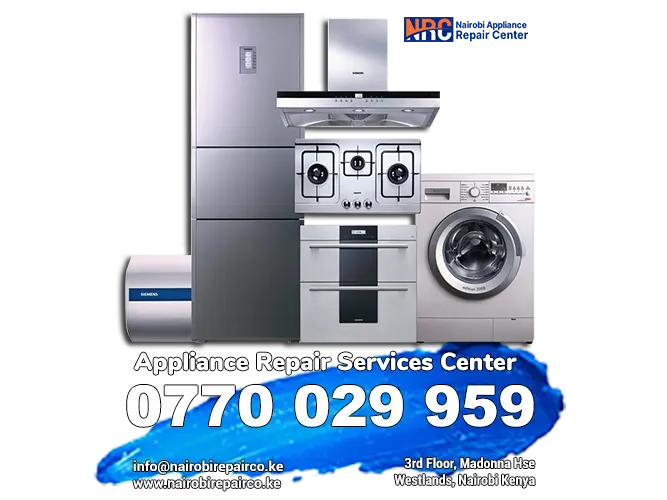openSUSE OS Installation in Nairobi, Kenya
By Achisystems.co.ke
Introduction
openSUSE is a robust, community-driven Linux distribution known for its stability, flexibility, and powerful tools like YaST (Yet another Setup Tool). For users in Nairobi, Kenya, installing openSUSE provides an opportunity to leverage an open-source operating system tailored for both personal and professional use. This article, presented by Achisystems.co.ke, offers a comprehensive guide to installing openSUSE on a computer in Nairobi, addressing local considerations such as hardware availability, internet connectivity, and regional support.
Prerequisites
Before initiating the installation process, ensure the following requirements are met:
- Hardware Compatibility: Verify that your computer meets openSUSE’s minimum system requirements (2 GB RAM, 10 GB free disk space, and a 1 GHz processor; 4 GB RAM and 20 GB disk space recommended).
- Installation Media: Download the latest openSUSE Leap or Tumbleweed ISO from the official openSUSE website (www.opensuse.org). In Nairobi, where internet speeds may vary, consider downloading from a reliable connection or purchasing a pre-loaded USB from a local vendor like Achisystems.co.ke.
- USB Drive or DVD: A USB drive (at least 8 GB) or a blank DVD for creating bootable installation media.
- Backup: Back up all critical data to an external drive or cloud storage to prevent data loss during installation.
- Internet Access: While not mandatory, a stable internet connection (available through providers like Safaricom or Zuku in Nairobi) enhances the installation process by allowing real-time package updates.
Step-by-Step Installation Guide
Step 1: Downloading openSUSE
- Visit www.opensuse.org and choose between openSUSE Leap (stable, fixed-release) or openSUSE Tumbleweed (rolling release for cutting-edge updates).
- Select the appropriate ISO file (e.g., 64-bit for most modern systems). In Nairobi, downloading may take time due to varying internet speeds; consider using a download manager to resume interrupted downloads.
- Verify the ISO’s integrity using the provided checksum (SHA256) to ensure the file is not corrupted. Instructions for checksum verification are available on the openSUSE website.
Step 2: Creating Bootable Media
- Use a tool like Rufus (Windows), Etcher (cross-platform), or dd (Linux) to create a bootable USB drive. For example, in Rufus:
- Insert the USB drive.
- Select the downloaded openSUSE ISO.
- Choose the USB as the target device and click “Start.”
- Alternatively, burn the ISO to a DVD using software like ImgBurn or Brasero if a USB is unavailable.
Step 3: Booting from the Installation Media
- Insert the USB drive or DVD into your computer.
- Restart the computer and enter the BIOS/UEFI settings (typically by pressing F2, F12, or Del during boot). Set the USB or DVD as the primary boot device.
- Save changes and reboot. The openSUSE installer should load.
Step 4: Installing openSUSE
- Select Installation Type: On the openSUSE boot menu, choose “Installation.” For advanced users, options like “Rescue System” are available.
- Language and Keyboard: Select your preferred language (e.g., English) and keyboard layout. In Nairobi, the US or UK keyboard layout is commonly used.
- Partitioning: The installer suggests a default partitioning scheme. For beginners, accept the default (e.g., ext4 for root and swap partitions). Advanced users can customize partitions, ensuring at least a root (
/) partition and a swap partition. - Software Selection: Choose a desktop environment (e.g., KDE Plasma or GNOME) based on your preference. KDE is feature-rich, while GNOME is lightweight and modern. Additional software can be installed later using YaST.
- User Setup: Create a user account and set a strong password. Optionally, enable automatic login for convenience.
- Confirm Settings: Review the installation summary and click “Install.” The process typically takes 10-30 minutes, depending on hardware.
Step 5: Post-Installation Configuration
- Network Setup: Configure your internet connection. In Nairobi, Wi-Fi or Ethernet connections via local ISPs (e.g., Airtel, Faiba) should work seamlessly. Use YaST’s Network Settings module if issues arise.
- System Updates: Run
sudo zypper refreshandsudo zypper updatein the terminal to update the system. Ensure a stable connection to avoid interruptions. - Install Drivers: For hardware like NVIDIA or AMD GPUs, use YaST to install proprietary drivers if needed. Most common hardware in Nairobi (e.g., HP, Dell, Lenovo laptops) works out of the box with openSUSE.
- Localization: Adjust time zone settings to Nairobi (UTC+3) using YaST’s Date and Time module.
Local Considerations in Nairobi
- Power Reliability: Nairobi occasionally experiences power outages. Use a UPS or ensure your laptop is fully charged during installation to avoid interruptions.
- Hardware Procurement: If purchasing new hardware, vendors like Achisystems.co.ke in Nairobi offer compatible desktops and laptops. Ensure the system supports Linux for optimal performance.
- Internet Access: For users in areas with limited connectivity (e.g., outskirts of Nairobi), offline installation is possible, but online updates are recommended for security patches.
- Community Support: Join local Linux user groups in Nairobi, such as the Kenya Linux Users Group, for peer support. Achisystems.co.ke also provides technical assistance for openSUSE installations.
Benefits of openSUSE in Nairobi
- Cost-Effective: As a free operating system, openSUSE is ideal for students, businesses, and developers in Nairobi looking to reduce software costs.
- Customization: Tools like YaST allow users to tailor the system for specific needs, such as web development or server management.
- Security: openSUSE’s regular updates and robust security features protect against vulnerabilities, critical for users handling sensitive data.
- Local Relevance: openSUSE supports multilingual setups, including Swahili, making it accessible for diverse users in Nairobi.
Installing openSUSE in Nairobi, Kenya, is a straightforward process that empowers users with a powerful, open-source operating system. By following this guide, users can set up openSUSE efficiently, leveraging local resources and support from Achisystems.co.ke. Whether you’re a student, professional, or enthusiast, openSUSE offers a reliable and customizable platform to meet your computing needs.
For further assistance, contact Achisystems.co.ke or visit local tech hubs in Nairobi for hands-on support. Embrace the power of open-source with openSUSE today!
